Normally, the articles that are published on a Web page are visible along with the publication date or the last update made to it. In general, this is very useful for users as they can give an idea of how up-to-date and valid the content of that publication is. This is not the only usefulness of the date of publication and update of a post for webmasters or web researchers.
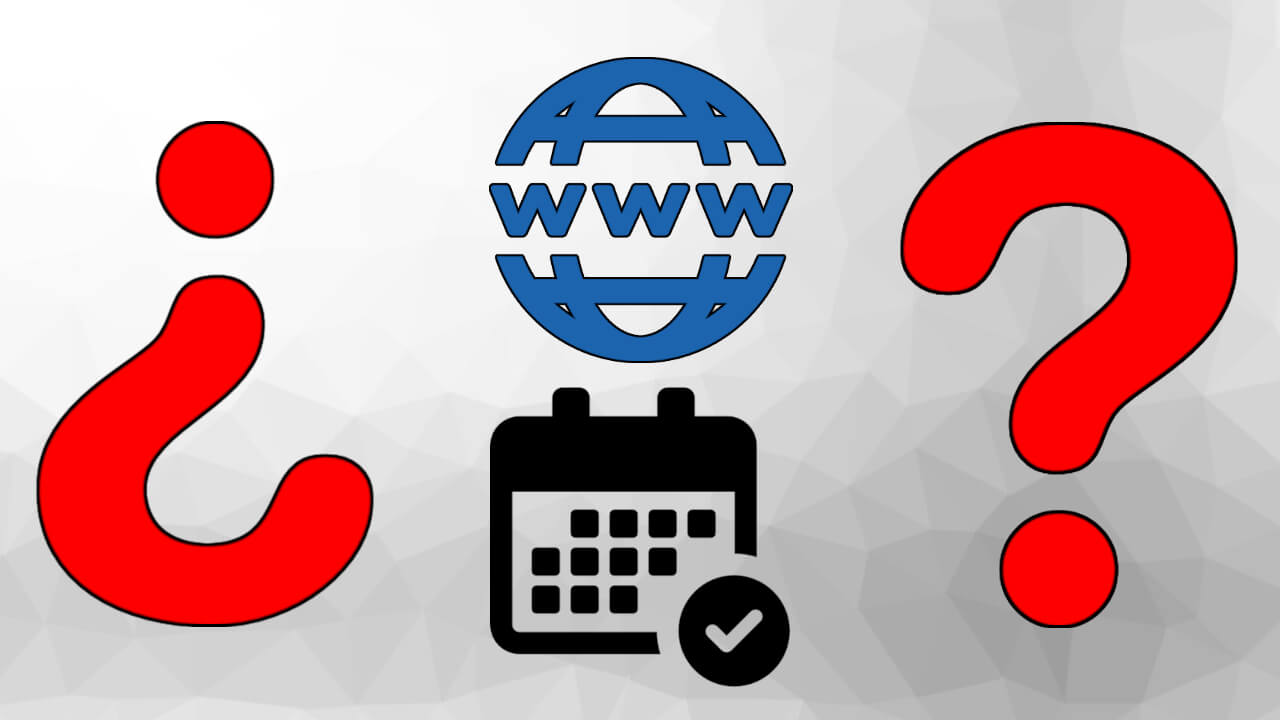
Related: How to preview the Web in Chrome: Google Results Previewer
Although generally all websites leave visible the date of publication or update of their articles or post, the truth is that some websites do not show it either because they do not include this information or because they deliberately hide it. The funny thing is that although websites do not want to show the publication date of their URLs, the truth is that users will be able to know it or at least the approximate date on which it was published.
If the publication date is not shown in the post itself or the URL of the website in which you are interested, there are different methods or techniques that allow you to know the publication date or approximate publication date.
That said, below we show you step by step how to know the date of publication or update of a specific Post (URL) of any website:
How to know the publication date of a Website Post (URL) . Various methods:
Method 1. Check the URL:
There are many websites (for example, many Wordpress websites) that incorporate the publication date automatically in the URL of the same.
Sometimes, even if the publication publisher or Webmaster decides to remove the publication date from the content, the URL may reflect that date. In addition, if after the first publication the date of the post is incorporated into the URL, very few will dare to remove the date from the URL since this action could have a very negative effect on its positioning.

Obviously this method will not work for many websites.
Method 2. Check the SiteMap
The Sitemap of a website is an .xml file that contains the URLs and metadata for each URL that exists within a website. This .xml file is usually accessible on a large number of websites. To access them there are basically 3 ways to access it.
1. Add to the end of the domain the ending: /sitemap.xml
Example: TechnoWikis/sitemap.xml
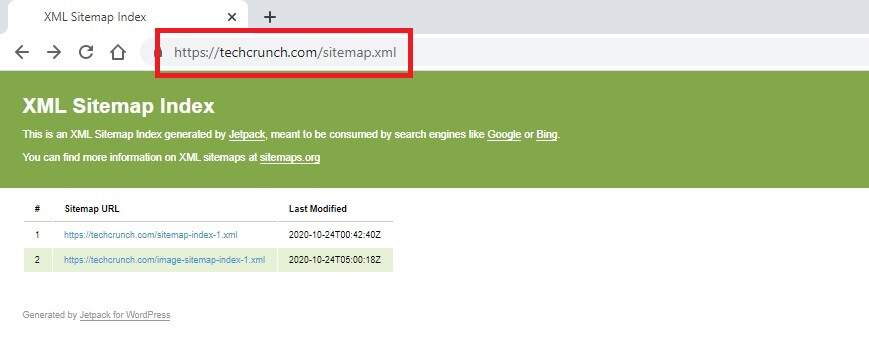
2. Access the website and scroll down, specifically to the Footer. There are some websites that incorporate access to the Sitemap through a link.
3. Search on Google for the following: site: Domain filetype: xml
Example: site: downloadsoruce.es filetype: xml
If you can get access to the Sitemap of the website, you will have to find the specific URL for which you want to know the publication date. In the metadata that is shown related to that URL, the publication dates will be indicated.
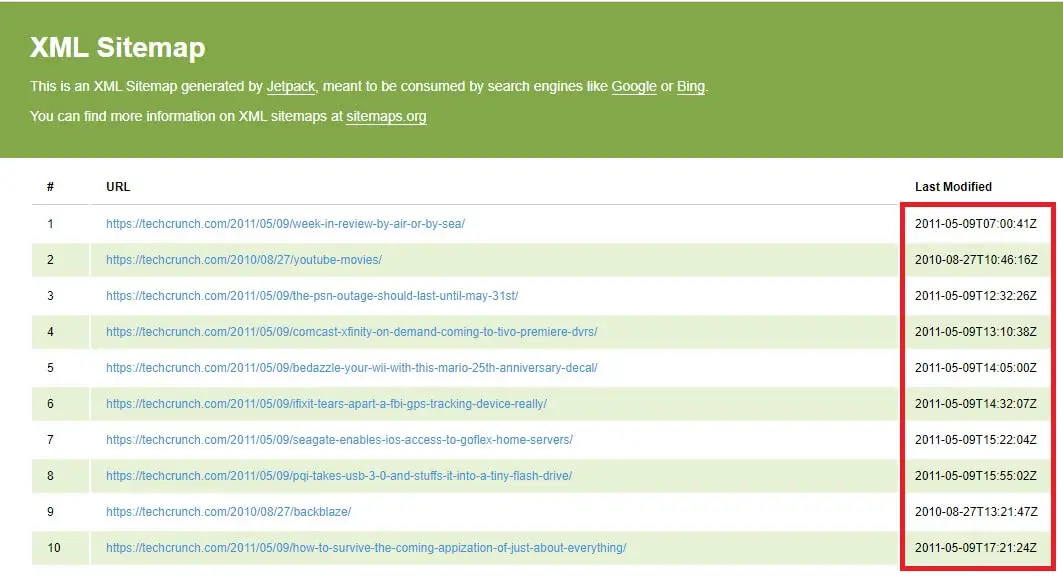
Method 3. Search Google
Go to the Google search engine. Here you have to enter the following: inurl: "Post URL"
Example: inurl:https://technowikis.com/41457/how-to-know-the-publication-date-of-a-page-url-or-post
This will cause the search result to show the publication date between the title and the description.
You should now see a date linked to that specific page. The date shown is not always the publication date. Generally, this is the date Google last noticed that the web page was updated. But post or URLs that have not been updated this date will refer to the publication date. For pages that update regularly, you may need to use more methods to find it.
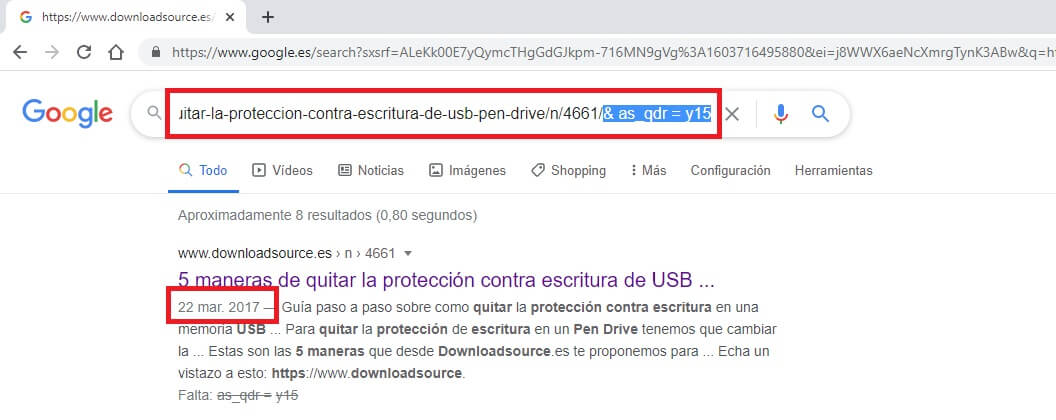
Method 4. Check the source code
You can check the source of the web page by right clicking on the web you are interested in. In the displayed menu click on the option: See page source code .
Here you perform the date search within the header (tag). There is a high probability that the tag will show when it was last published or modified.
You can also search for keywords within the URL code. Use the keyboard shortcut: Ctrl + F. In the search use words such as: Date (date), Modified (Modify, etc.
If you find any results, check the date as this will most certainly be the date of publication of said URL.
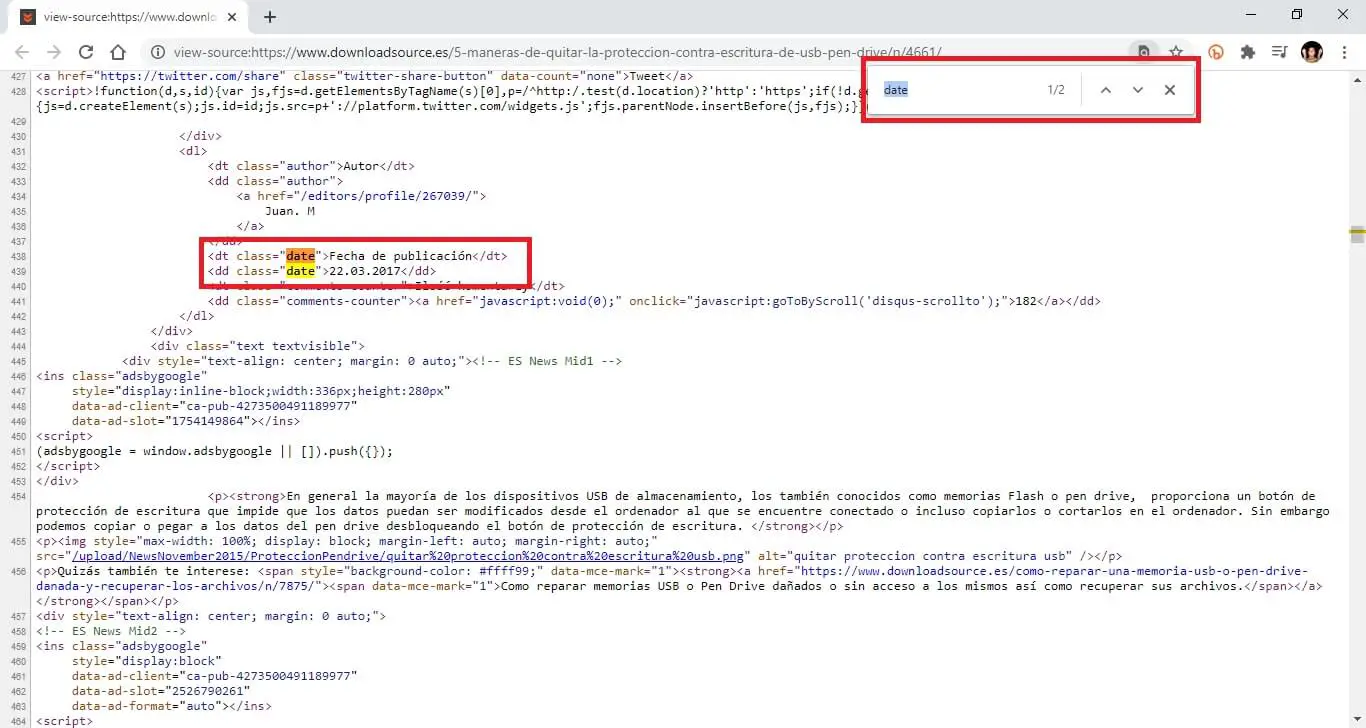
Method 5. Check the Comments
If the post you want to know the Date of publication belongs to a popular website, almost certainly the first day of publication it will already receive comments. Check the first comment made on the post and it may indicate the date of the comment.
Method 6. Check Images
Even if a post's URL doesn't reflect the post's publication date, your image's URL may still show it. The date that can be shown in the URL of the images is reliable in the event that it was uploaded the same day the post was published.
Access the post where you want to know the publication date and locate one of the images. Right click on it and in the context menu select the option to open in a tab. Now you will see the URL of the image in which you can inspect if there is any date.
Method 7. Use the Way Back Machine.
On the internet there are several tools capable of showing you how specific websites or pages have been seen over time. This tool allows you to check how many times the file has saved a specific page and between what dates. Often times, you can even see what that page looks like at specific times. This means that you can prove that this URL existed on that specified date.
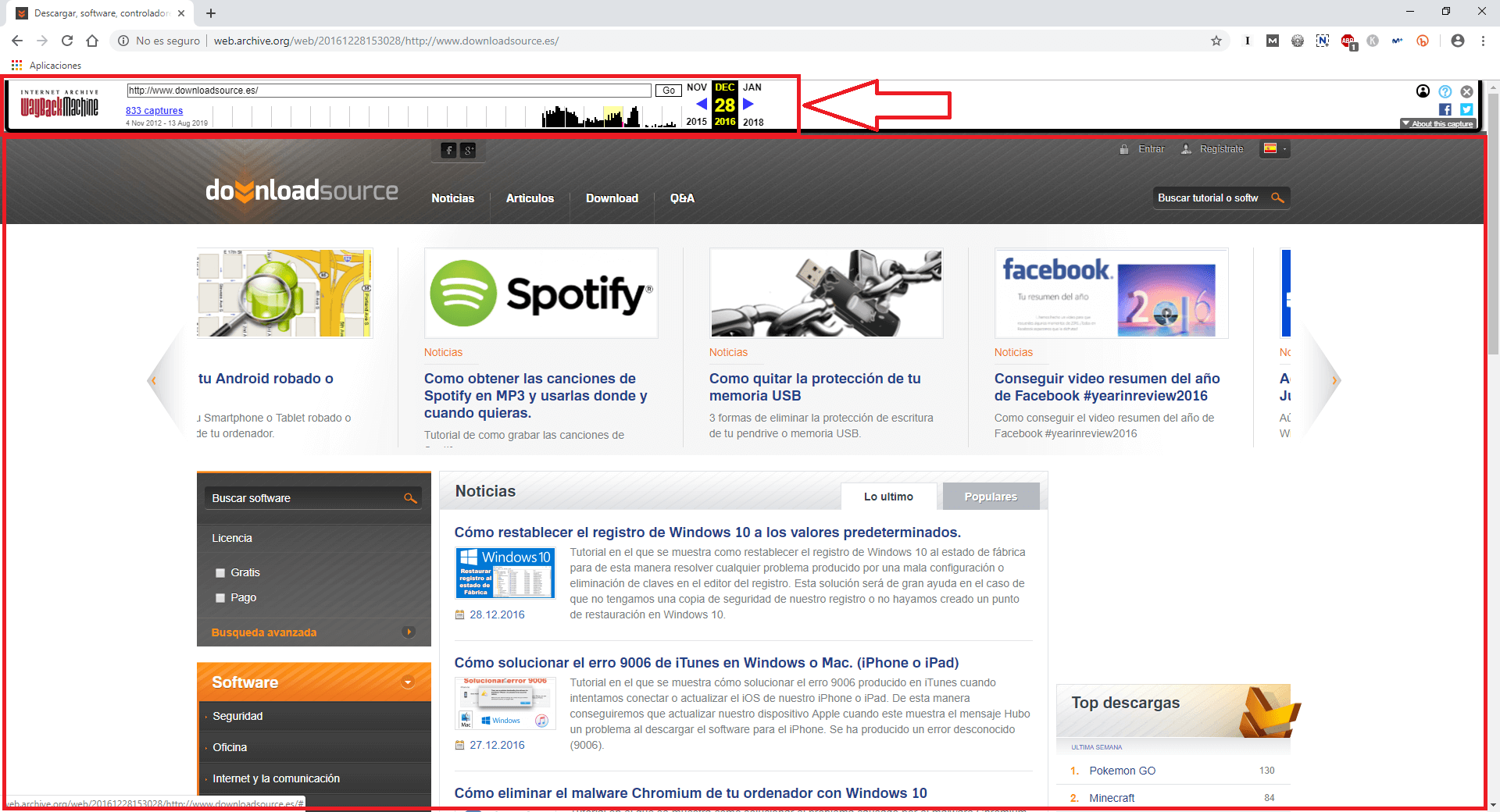
The earliest date displayed in this tool will be an indicator of when, approximately, this content was published. If you want to know more details about how to use this tool, we recommend the following tutorial: Learn how the design of a website was in the past.